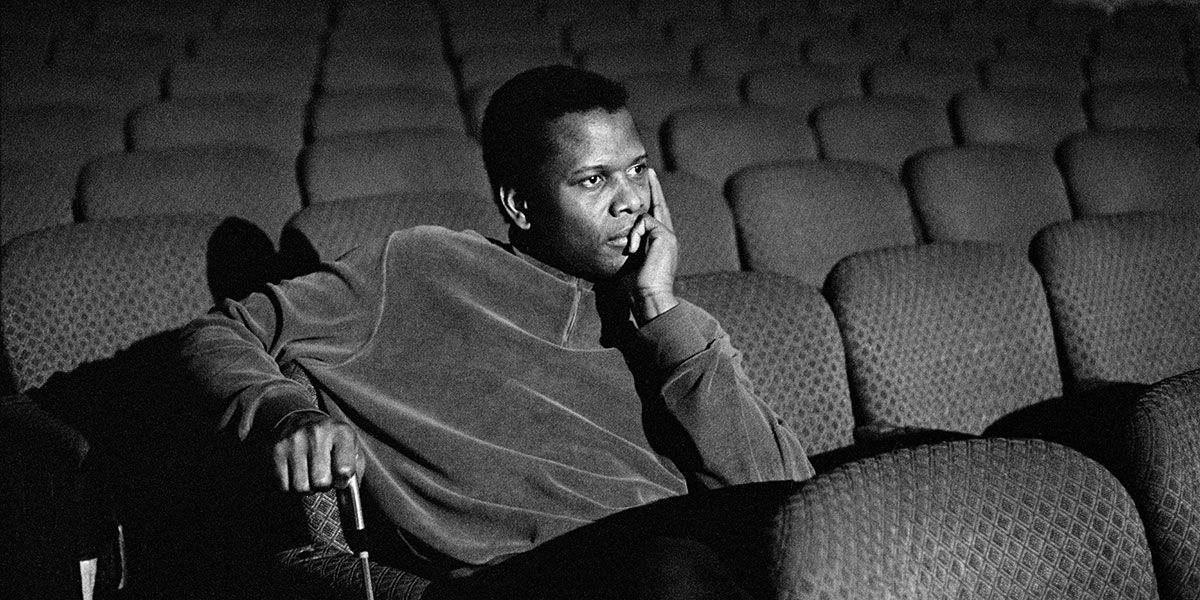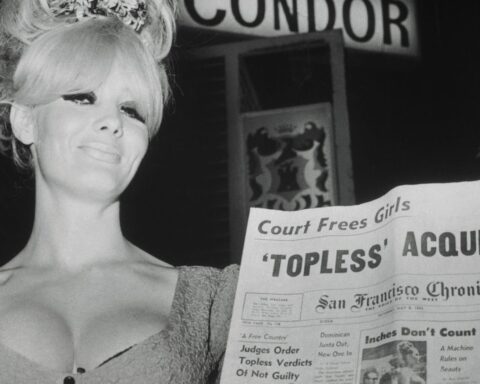Sidney
(USA, 111 min.)
Dir. Reginald Hudlin
Programme: Galas (World Premiere)
Through memorable turns as characters such as Mr. Tibbs, Homer Smith, John Prentice, or Noah Cullen, Sidney Poitier redefined Hollywood in a way that few artists have. Sidney, directed by Reginald Hudlin, is a loving and handsomely composed doc portrait of the late screen icon. While the film sticks to a conventional celebrity bio, complete with archival clips, talking heads, and a captivating interview with its key subject, who died in January 2022 at the age of 94, Sidney’s attention to formula admittedly feels appropriate. The film observes how Poitier mastered the formula of the Hollywood star and moulded himself into the ideal leading man. Sidney is a fitting celebration of one of Hollywood’s most significant screen stars.
The real treat here is the interview with Poitier himself. The veteran actor faces the camera in a direct address and recalls his life’s story. His voice wears his age and experience, which makes for an absolutely magnetic presence. He’s a great storyteller, although that should come as no surprise.
Sidney’s Story
Sidney situates Poitier’s Hollywood narrative through the lens of American racism at the outset, which is perhaps inevitable. Poitier tells about life growing up in the Bahamas where his tomato farmer parents offered a modest, happy childhood. Moreover, Poitier leans into the camera and shares how coming of age on Cat Island shaped his self-image without a racialized lens. Poitier explains that Blacks were the majority on the island, so he grew up in a community of equals. Trips to Nassau, meanwhile, brought him closer to the British colonial influence where white residents lived. Even then, though, Poitier explains that racism wasn’t really part of his experience until he moved to the USA at age 15.
Sidney lets Poitier share how life in Jim Crow-era America was markedly different from life in the Bahamas. His stories evoke life on a different planet, as the free roaming days of the Bahamas yield to an adolescence where he was expected to keep his head down and use the back door. There are stories of near misses with the Ku Klux Klan and accounts of run-ins with police that echo contemporary headlines. Sidney doesn’t focus too much on traumatic episodes, though. Hudlin uses Poitier’s origin story to illustrate how one man went from sleeping in bus-stop restrooms to becoming an Oscar winning actor and one of the top stars of the 1960s.
The Making of a Star
Poitier reveals strategies that helped him defy the expectations for what a Black man in America could be. Reading the newspaper with the aid of a Jewish waiter, for example, expanded his literacy and vocabulary. Listening attentively to broadcaster Norman Brokenshire on the radio, similarly, helped Poitier mask his Bahamian accent and master the diction of what remains one of the most recognizable voices in Hollywood. More significant, though, are his thoughts on breaking out in Hollywood. Poitier explains his dismay with the paltry roles offered to Black actors—servants, crooks, or inarticulate comic relief. He proudly admits that he always took parts that would have made his father proud: strong men with no apologies.
Sidney offers a master class in screen acting as it unpacks Poitier’s filmography. All the highlights are present: The Defiant Ones, Lilies of the Field, In the Heat of the Night, Guess Who’s Coming to Dinner? and To Sir, with Love, among others. The film assembles a who’s who of interviewees that includes Poitier’s wives and daughters. Hudlin also includes the many Black actors whose careers bear a direct link to Poitier’s own. Interviewees with Denzel Washington, Halle Berry, Louis Gossett, Jr., Morgan Freeman, and Oprah Winfrey (who also produced the film) deconstruct the layers of Poitier’s performances and share the impact they had on them.
Moreover, Sidney smartly looks at movies as products of their time. Some of Poitier’s films haven’t aged well, largely because of the patronizing manner in which Hollywood depicted Black lives. The interviewees are willing to confront the films’ shortcomings to illustrate the work that’s still being done today.
Making Change One Movie at a Time
Appropriately, Sidney devotes significant time to Poitier’s landmark Oscar win as Best Actor of 1963. That film, Lilies of the Field is one that doesn’t escape scrutiny as the interviewees explore how the movies in which Poitier starred were made by and for white audiences with his character playing a virtuous, non-threatening Black man who could feed white liberal guilt. Sidney nevertheless admits that small incremental changes can sometimes be more forceful than radical blows. For all the parts that don’t sit easy with them, interviewees like Spike Lee energetically share the excitement they felt upon seeing Poitier slap a white man back in In the Heat of the Night. The film acknowledges that the progression of Poitier’s career help radically put Black representation on the big screen at a time when people of colour were marching for their lives in the streets.
The imperfection of Poitier’s filmography as an actor is also important context for his career as a director. Sidney underscores how change only really happens in an industry like film when artists have active roles on both sides of the camera. As the film builds upon Poitier’s activism, his friendship and falling out with Harry Belafonte, and his place in the civil rights movement, Sidney gives Poitier credit for filling his crews with Black hands across all levels of production. The film pays tribute to an icon who shaped the landscape for onscreen representation and admirably salutes many of the players continuing Poitier’s fight to this day.














